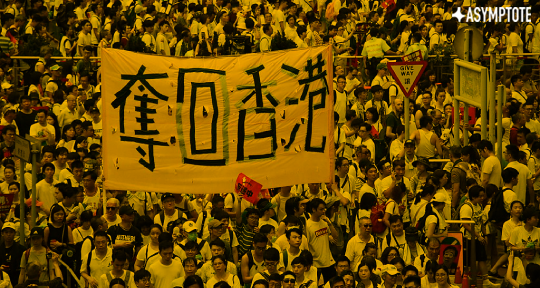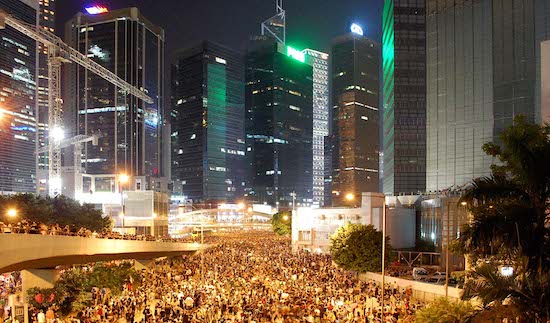This week, our editors from around the world report on book-crafting as political resistance and new poetry anthologies in Puerto Rico, a controversial book fair in Hong Kong, and the recovery after decades of a lost manuscript by a major literary figure in Sweden. Read on to find out more!
Cristina Pérez Díaz, Editor-at-Large, reporting from Puerto Rico
The poets Nicole Delgado and Xavier Valcárcel founded Atarraya Cartonera in 2009. Making books out of discarded cardboard boxes was their response to the economic crisis just beginning to hit Puerto Rico—the result of more than a decade of neoliberal policies and obscene corruption. In the 1990s, neoliberalism had left its mark on the book market with the arrival of the gigantic US chain Borders, whose monopoly forced many small independent bookstores out of business. Borders sold books mostly in English, which clashed with the reality that Puerto Rico’s first language is Spanish and most of the population is not bilingual. In their stores, Puerto Rican literature was showcased in a small shelf under the headline, “Of local interest.” Nicole and Xavier paid frequent visits to Borders but through the back door. They took the stores’ discarded cardboard boxes to handcraft Atarraya’s own “of local interest” books. Thus, they turned book-crafting into a political gesture by looking at the neoliberal crisis, as Nicole puts it, “not as an obstacle but rather as a material to work with.” The press participated in a larger web of cardboard presses in Latin America, each in its own way a response to a national and global crisis. Atarraya was hence an effort to connect with literary movements in other parts of Latin America, something that has always been hard in Puerto Rico because of the trade limitations imposed by the US. Active until 2016, Atarraya published a total of twenty-four poetry titles, all of which are now available for free as pdfs on its archival blog.
Nicole and Xavier have continued collaborating––and dream of reviving Atarraya one day. Last month, they co-hosted a virtual editing workshop at La Impresora, a publishing press and Risograph shop founded in 2016 by Nicole with fellow poet and editor Amanda Hernández. La Impresora recently received a grant from Proyecto Inversión Cultural, which has facilitated, among other things, the offering of free workshops. The first, addressed to emerging writers without a published book, tackled the ropes of the editorial process. Together with the ten participants who were all in their early twenties, Nicole and Xavier rehearsed what goes into bookmaking, including content, conceptualization, and production. The result is a collaborative, forthcoming anthology including poems from each of the attendants. The title, Ese lugar violento que llamamos normalidad (That violent place we call normality), reveals how things have and have not changed in the ten years since Xavier and Nicole edited a first poetry anthology, back with Atarraya Cartonera. The latter’s title was Plomos (Lead Sinking Weights), a loaded word that simultaneously alludes to the small weights used for sinking the fishing net, to water contamination by lead, and to gun violence––part of Puerto Rico’s “normality.” As Nicole and Xavier write in the blog, “any relationship between that word and the violent circumstances of the country or with the contamination caused by certain heavy metals, is absolutely intentional.” Back in 2012, there was room for metaphoric language. In 2022, an emerging generation of writers names violence with even more earnest precision.






